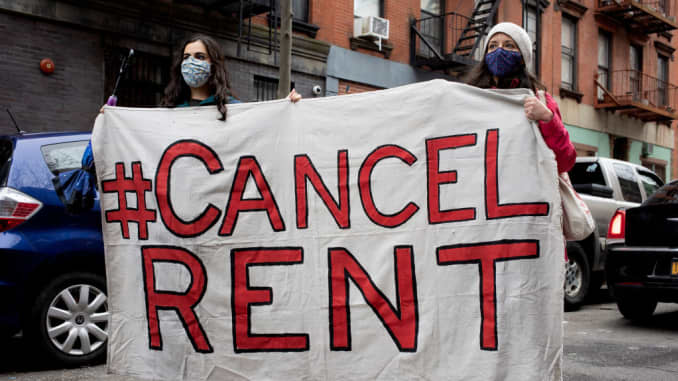Landlords would not post an eviction sign for their tenants due to the residue of the Coronavirus pandemic. Tenants have been financially affected by COViD-19, and CDC understood their final concerns.
CNBC reported that the Center for Disease Control and Prevention stated that there would be an extension on the national ban on eviction until June 30th, 2021. CDC’s original eviction moratorium was supposed to expire within a few days.
“The Covid-19 pandemic has presented a historic threat to the nation’s public health,” said CDC director, Dr. Rochelle Walensky. “Keeping people in their homes and out of crowded or congregate settings – like homeless shelters- by preventing evictions is a key step in helping to stop the spread of COVID-19.”
Congress authorized to release of more than $45 billion in rental assistance to help struggling renters pay their rent, and homeowners would be able to pay their mortgage.
Center on Budget and Policy Priorities published an article stating how the COVID-19 recession plays a role in people’s housing, food, workforce, and they can not make their rent payments on time. In 2020, one out of six adult renters couldn’t pay their rent: 24 percent were black, 21 percent Latino, 20 percent Asian, and 12 percent White. One out of five renters living with children couldn’t pay last month’s rent, and they would not have enough food to eat in the home.
“When you’re looking at an infectious disease like COVID-19, evictions can have an impact not only on the health of evicted families but also on the health of the broader community,” said Kathryn Leifheit, a postdoctoral fellow at the UCLA Fielding School of Public Health.
Although the CDC presented the extension, it only applies to individuals making $98,000 yearly or less and couples making under $198,00 a year. Secondly, renters have to submit a declaration to their landlord, stating why they cannot pay their rent, and eviction can lead to homelessness or living with others.
Diane Yentel, president of the National Low Income Housing Coalition also believes the extended moratorium would be significant for folks who need to catch on their rent and it is essential. It would allow state and local communities to disperse millions of dollars for rental assistance.
“It’s disappointing that the administration didn’t act on the clear evidence and need to also strengthen the order to address the flaws that undermine its public health purpose,” said Yentel.















